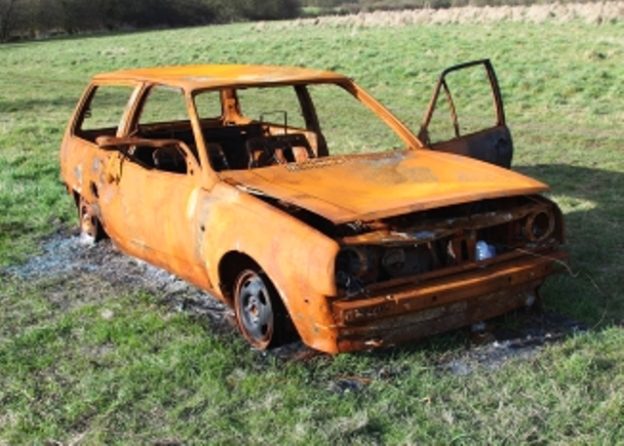The Ecological and economic Advantages of Reusing Junk Cars And Trucks
Recycling scrap autos presents many financial and environmental benefits that expand well past waste reduction. By recovering approximately 90% of vehicle components, this practice substantially decreases landfill burden while protecting crucial natural sources. It cuts down on energy usage and greenhouse gas exhausts connected to raw product removal and production. The procedure likewise produces work opportunities throughout various sectors, from taking apart to logistics, and provides customers with cost-efficient vehicle components. These advantages highlight the complex worth of recycling scrap vehicles, yet there are additionally aspects to consider when reviewing its complete effect.
Minimizing Landfill Waste
Reducing land fill waste with the recycling of junk vehicles plays a pivotal duty in ecological conservation. Efficient reusing procedures can considerably decrease the volume of waste that ends up in land fills when cars reach the end of their life cycle. Scrap automobiles, if not effectively recycled, add to the expanding issue of land fill overcapacity, worsening environmental destruction and potentially infecting dirt and groundwater with unsafe substances such as oil, gas, and hefty metals.

Additionally, the recycling process mitigates the negative impacts of vehicle waste on biodiversity. Land fills are infamous for interfering with regional ecosystems, and decreasing the influx of junk automobiles aids maintain natural environments. Eventually, recycling junk cars and trucks is a critical technique that promotes sustainable waste monitoring, lining up with wider environmental objectives.
Conserving Natural Resources
In addition to mitigating land fill overcapacity, recycling junk automobiles plays a substantial role in saving natural sources. By recycling scrap automobiles, we considerably reduce the need for raw materials, thereby curbing the ecological destruction linked with mining tasks.
Furthermore, the process of reusing auto parts such as lead, copper, and aluminum is much less energy-intensive than producing these products from virgin sources. This energy financial savings equates directly right into lowered nonrenewable fuel source intake and lower carbon footprints (Fort collins we buy junk cars). Furthermore, by recovering and repurposing materials, we extend the lifecycle of non-renewable resources, guaranteeing they remain offered for future usage
Additionally, reusing automobile liquids like transmission, antifreeze, and oil fluid protects against dangerous substances from polluting soil and water sources. With systematic reusing efforts, these liquids can be detoxified and recycled, advertising a round economy and more diminishing the strain i thought about this on all-natural sources. Therefore, recycling scrap cars and trucks uses a complex strategy to saving our earth's invaluable natural properties.
Developing Job Opportunities
The recycling of scrap autos not only profits the setting however additionally stimulates economic growth by developing job chances. This burgeoning industry offers a broad selection of employment leads, ranging from the preliminary collection and transportation of old lorries to the complex processes of taking apart, arranging, and repurposing the numerous elements.

The spreading image source of recycling plants better magnifies the job market, demanding duties such as designers, equipment operators, and quality control professionals to make certain and manage the innovative machinery conformity with ecological laws. Even management settings, such as sales, marketing, and customer care, see a rise as the market broadens.
Decreasing Manufacturing Expenses
By integrating recycled materials from scrap vehicles, makers can significantly decrease manufacturing prices. The power called for to process recycled products is dramatically much less than that required to produce new products from scratch.
Furthermore, the reusing procedure helps simplify the supply chain by offering a constant increase of materials that are conveniently offered and frequently more affordable than freshly mined resources. These price efficiencies are particularly vital in a highly competitive sector like automotive production, where margins can be razor-thin. Additionally, the recycling of scrap cars aids reduce the unpredictable prices of basic materials, allowing suppliers to better projection and regulate their manufacturing spending plans.
Supplying Economical Vehicle Components
When junk cars are recycled, the availability of economical car components substantially enhances, profiting both customers and repair work stores. Recycled car components are commonly offered at a portion of the cost of repairs, supplying an affordable choice for automobile proprietors and technicians. This cost can be important for individuals that may not have the monetary ways to purchase new components, enabling them to keep their cars in functional and risk-free condition.
Service centers additionally acquire from this raised availability of budget-friendly components. By sourcing recycled elements, these organizations can decrease their functional prices, which can be passed on to customers via lower service fee. This, in turn, can cause greater consumer fulfillment and loyalty, as customers value the price financial savings without compromising on quality.
Additionally, the this content quality of recycled components has boosted substantially over the years, many thanks to innovations in reusing processes and quality control measures. Many recycled parts go through extensive screening to guarantee they satisfy market criteria, supplying dependability similar to new parts - we buy junk cars Denver. By offering a economically practical and premium choice, the recycling of scrap autos plays a pivotal function in supporting both the automotive repair sector and the broader customer market
Verdict
Recycling scrap cars offers considerable financial and ecological benefits by significantly reducing landfill waste and preserving all-natural sources. In general, the recycling of scrap automobiles supports both financial growth and sustainability goals.
Recycling scrap automobiles offers various economic and environmental benefits that expand well beyond waste decrease. Scrap cars and trucks, if not properly recycled, contribute to the growing trouble of landfill overcapacity, aggravating environmental degradation and potentially infecting dirt and groundwater with hazardous materials such as oil, gas, and heavy metals.
By reusing junk automobiles, we significantly decrease the need for raw materials, thereby curbing the environmental degradation connected with mining tasks.When scrap cars are recycled, the availability of cost effective automobile parts dramatically enhances, benefiting both consumers and fixing stores.Reusing junk cars provides considerable financial and environmental benefits by dramatically reducing land fill waste and saving natural sources.